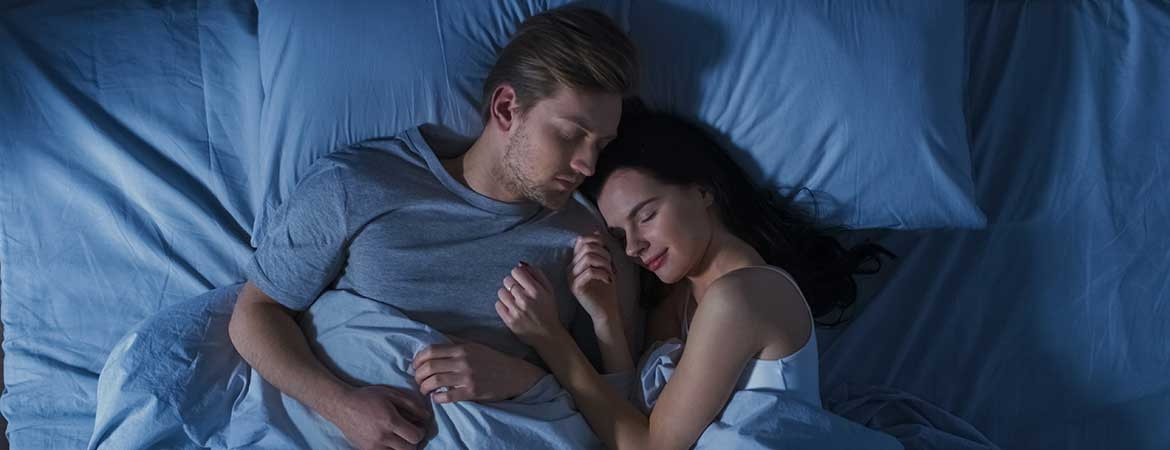- Free Shipping Over $75
- 60-Day Money-Back Guarantee
Shop Popular Products
Made from US-Grown Industrial Hemp
100% Clean Ingredients
Rigorously Tested, Quality Assured

A recent survey by Consumer Reports1 found that over two-thirds of people struggle to enjoy a good night’s sleep at least once each week. Even worse, roughly 30% of respondents reported difficulty falling or staying asleep the majority of each week. If you are among the growing number of Americans who battle sleep problems, do not despair. There are many simple measures you can take to rest more soundly. Below are ten tips to help you get a good night’s sleep.
“A relaxing, routine activity right before bedtime conducted away from bright lights helps separate your sleep time from activities that can cause excitement, stress or anxiety which can make it more difficult to fall asleep, get sound and deep sleep or remain asleep.”
– The National Sleep Foundation
Establishing a regular nightly bedtime routine is one of the best ways to help you fall asleep and stay asleep. By resolving to stick to the same schedule and routine each night – even on the weekends – you can help to regulate your body’s clock and feel sleepy faster.
Mattresses and pillows are not designed to last forever. They are manufactured with a specific life expectancy and it is up to you as a consumer to periodically replace worn or aging mattresses and pillows. Most mattresses are designed to last approximately 7 to 10 years, though some brands are constructed to last longer. In general, the mattresses that are the longest lasting and most durable are manufactured with latex or memory foam.
“The ideal sleeping temperature falls anywhere between 60 and 67 degrees Fahrenheit, and as you sleep your body temperature lowers naturally. Introducing your body to a cooler environment helps stimulate sleep and allows you to cycle naturally though the sleep stages.”
– Frank Apodaca, The Sleep Judge
Creating a cooler environment is one of the best ways to promote sound sleep. Experts recommend that you keep your thermostat between 60 and 67 degrees Fahrenheit to help your body progress through each key stage of sleep. In addition to enjoying a better night of sleep, you can also enjoy significant cost savings on your utilities.
Dietary changes can have a significant impact on the quality of your sleep. Foods that include tryptophan, potassium, and carbohydrates are typically good choices – especially if you are seeking a pre-bedtime snack. Here is a short list of foods that can help you enjoy better sleep:
“Figs pack potassium, magnesium, calcium, and iron. These minerals help with blood flow and muscle contraction, which are key for falling asleep.”
– Jaclyn London, MS, RD, CDN, Nutrition Director at the Good Housekeeping Institute
Sometimes the foods you do not consume are just as important as those you do consume. Caffeine is a powerful stimulant found in coffee, soft drinks, and iced tea. Consuming caffeine prior to bedtime can leave you wide awake right around the time you should be winding down for the evening. Additionally, caffeine stimulates bladder activity, which can interrupt an otherwise peaceful night’s sleep with repeated trips to the bathroom. If you are searching for a sleep-inducing beverage before bedtime, consider an herbal tea or a glass of warm milk.
There are many types of CBD supplements, including hemp oil, CBD topicals, capsules, and vapes. One of the best CBD products to consume before bed is CBD Night Time Gummies, which offer just the right combination of sweetness and CBD. They also include 1.5 of melatonin, a natural supplement that is known to help promote a restful night’s sleep. Available in convenient 30-count bottles, CBDistillery™ PM Gummies offer a tasty way to help you drift off to sleep.
A sound machine can help mask noise disruption and create a calm, soothing environment. Most sound machines offer you a variety of peaceful sounds that can help you peacefully drift off to sleep after a long day of activity. Popular sound choices include rainfall, white noise, ocean waves, and rainforest activity. Sound machines are available in stationary and portable models, and are growing in popularity among frequent travelers who battle sleep deprivation on a regular basis.
“A short nap is usually recommended (20-30 minutes) for short-term alertness. This type of nap provides significant benefit for improved alertness and performance without leaving you feeling groggy or interfering with nighttime sleep.”
– The Sleep Foundation
While a 15-minute power nap might not interfere with a sound night’s sleep, naps that last an hour or longer can hinder your sleep routine and your ability to fall asleep quickly at night. If you are overcome by sleepiness during the middle of the day, do your best not to nap for longer than 30 minutes.
Some people attempt to regulate their sleep by depending on sleeping pills, alcohol, or other substances. While it can be tempting to try to combat sleeplessness with a pill or a few of your favorite cocktails, you may end up doing more harm than good to your sleeping routine. In addition to fostering substance dependence, self-medicating may end up complicating your sleeping habits and can prove to be harmful.
While most people will be able to improve their sleep quality by following the tips above, some situations require the guidance of a medical professional. If you are unable to improve your sleep in spite of making adjustments to your daily life, you may wish to discuss your situation with your primary care provider or a sleep specialist. A trained professional will be able to evaluate your health and sleep habits and provide professional recommendations to help you sleep better.
Enjoying a good night’s sleep is not as easy as it sounds for some people. Fortunately, there are many measures you can take to improve the duration and quality of your sleep. By following the tips above, you can minimize distractions and prime your body for a peaceful night of rest.